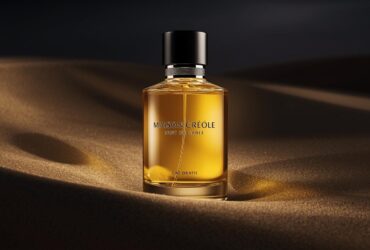Perfume is an essential part of personal grooming, enhancing our identity with an invisible signature of fragrance. However, just like food or cosmetics, perfumes do have a shelf life, and using an expired perfume can affect the fragrance’s quality and your experience. Below, we will provide detailed guidelines to help you determine whether your favorite perfume has passed its prime.
What Causes Perfume to Expire?
Perfumes are made with a delicate balance of ingredients, including essential oils, alcohol, and water. Over time, environmental factors such as heat, light, and air exposure can degrade these components, causing the perfume to lose its original aroma. Prolonged exposure can also result in chemical changes, making the scent unpleasant.
Signs That Your Perfume is Expired
1. Change in Fragrance
The most noticeable indicator of an expired perfume is a change in its smell. If the scent no longer smells the way it did when you first purchased it, it could be a sign of oxidation or breakdown of the perfume’s chemical composition. Here’s what to look for:
- A sour or vinegar-like scent replacing the original notes.
- The fragrance may smell weaker or completely different.
2. Discoloration of the Liquid
Perfumes are typically clear or slightly tinted, but expired perfumes often change color. This discoloration occurs due to oxidation or reaction with light. Check for:
- A darkening of the liquid (e.g., clear perfumes turning yellow or amber).
- Cloudiness or the appearance of sediment in the bottle.
3. Altered Consistency
Perfumes generally have a smooth and even consistency. If the liquid feels oily or has separated into layers, this indicates the breakdown of ingredients and that the perfume may have expired.
4. Change in Longevity
Expired perfumes tend to evaporate more quickly when applied. If your fragrance fades within minutes, even after using the same amount as before, it’s likely no longer effective.
How to Check the Expiry Date of a Perfume
1. Look for Batch Codes
Most perfumes have a batch code printed on the bottle or box. These codes can be checked against online databases or through the manufacturer’s website to determine the production date and shelf life.
2. General Shelf Life Expectancy
On average, perfumes last between 3 to 5 years if stored correctly. However, some fragrances with higher alcohol content may last longer. Natural or organic perfumes, on the other hand, might have a shorter shelf life due to the lack of preservatives.
3. Follow the Period After Opening (PAO) Symbol
Some perfume bottles include a small open-jar icon with a number, such as “24M” or “36M,” indicating how many months the product will remain fresh after opening.
How to Properly Store Perfume to Extend Its Shelf Life
1. Keep It Away from Direct Light
Sunlight can break down the molecules in a perfume, causing it to expire faster. Always store your perfumes in a cool, dark place.
2. Avoid Heat and Humidity
Excessive heat and humidity can accelerate the degradation process. Avoid storing your perfume in bathrooms, near windows, or next to heat sources.
3. Minimize Air Exposure
Air can oxidize the perfume, altering its chemical balance. Always close the bottle tightly after use and avoid leaving it open for extended periods.
What to Do With Expired Perfume?
1. Use It for Decorative Purposes
Expired perfumes in attractive bottles can be repurposed as decorative items for your dresser or vanity.
2. Freshen Up Linens
Spray expired perfume on linens or curtains to give them a subtle scent. However, test on a small area first to ensure it doesn’t stain.
3. DIY Projects
Combine expired perfume with potpourri or candles to create a custom aromatic experience in your home.
Common Myths About Perfume Expiry
Myth 1: Expensive Perfumes Never Expire
High-end perfumes are not immune to expiration. While their superior ingredients might last longer, they will eventually degrade like any other perfume.
Myth 2: Refrigerating Perfume Prevents Expiry
While refrigeration can slow down degradation, fluctuating temperatures when removing and replacing the perfume can still harm it. A consistent, cool environment is a better solution.
When Should You Discard a Perfume?
If your perfume shows multiple signs of expiration—such as an unpleasant smell, visible discoloration, or sediment—it’s best to dispose of it. Continuing to use expired perfume can lead to skin irritation and diminish the intended sensory experience.
Keeping an eye on the condition of your perfume is essential to ensure you always enjoy its intended fragrance. By understanding the signs of expiry and following proper storage practices, you can extend the life of your perfumes and make the most of your collection.







Leave a Reply